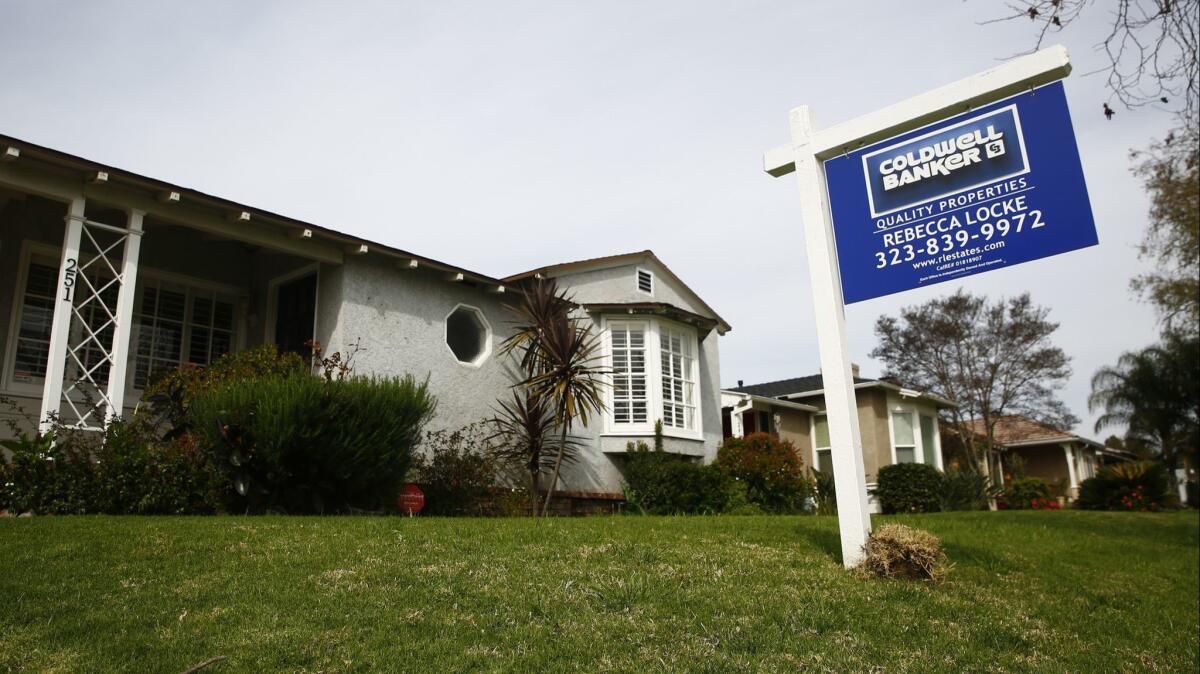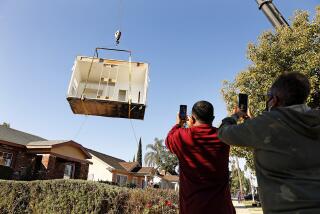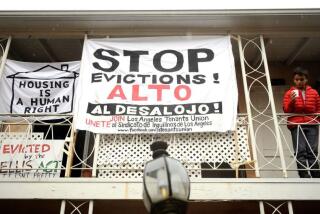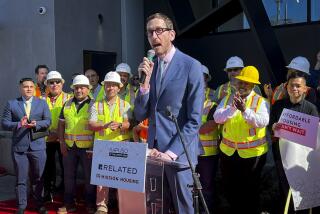Bid to allow duplexes on most California lots dies after Assembly approval comes too late

California lawmakers nearly sent a bill to the governor that would have essentially ended single-family zoning across much of a state mired in a housing crisis.
Then they ran out of time.
In a legislative season marred and compressed by the coronavirus outbreak, the California Assembly approved Senate Bill 1120 three minutes before the midnight deadline Monday for bills to pass both houses, a time enshrined in the state Constitution.
But Tuesday came before the Senate could vote. The bill, which would have allowed for duplexes on single-family lots, likely had a good chance.
Its author was Senate leader Toni Atkins (D-San Diego) and the bill previously passed the Senate 39 to 0. It needed to go to the Senate again only because the Assembly amended it slightly.
The failure raised questions among supporters as to why Assembly Speaker Anthony Rendon (D-Lakewood) brought up the bill at 11:30 Monday night, and it marked another setback for a multiyear push by some activists and legislators to tackle California’s housing crisis by boosting density.
“Assembly leadership held the bill until the last minute for a vote and I don’t know why,” said Brian Hanlon, executive director of California YIMBY, which supported the bill. “We need the Senate and Assembly to be talking and working together.”
In a statement, Atkins said she was dismayed to see the bill “die under such unusual circumstances in the Assembly,” but hoped “reason will prevail next session.”
She added that she understood some bills take a while, but to “lose a common sense bill like SB 1120 in the middle of a crisis because of folks running out the clock. That is harder to understand.”
Rendon’s spokeswoman, Katie Talbot, didn’t respond to Atkins’ comments, but she said “this was a challenging year to get all our work done in the Legislature” and she noted that after the bill was brought up at 11:30 p.m., a debate among Assembly members pushed the bill closer to midnight.
“The Speaker is supportive of SB 1120, and it did pass the Assembly, but unfortunately we ran out of time to get it past the finish line,” she said.
SB 1120 came out of the January defeat of controversial Senate Bill 50, which would have allowed for fourplexes on most single-family lots and low- and mid-rise apartment buildings in places near transit and job centers, regardless of whether they were single-family neighborhoods.
Atkins introduced her duplex bill in February, saying it was a way to boost supply while respecting neighborhood character. Although more modest, it still posed a departure from the way that many California neighborhoods were built: one lot, one house.
SB 1120 wouldn’t have outlawed single-family houses. But it would have required local governments to permit applications to convert a house into a duplex or to demolish a house and build two units, either as a duplex or two single-family houses.
Property owners also could have split their lot in two and built two more units, thus allowing four homes where there previously was just one.
SB 1120 wouldn’t have applied in rural areas and historic districts.
Cities could also apply design standards to new units “unless those standards would have the effect of physically precluding the construction of up to two units,” according to the bill’s language.
Supporters saw it as a way to ease California’s affordability problems that most economists blame on a lack of supply that has forced people to bid up home prices and rents to find a place to live. In addition to adding supply, supporters hoped the new duplexes and single-family homes built under SB 1120 would also have been small-scale and cheaper than some options on the market.
But like previous efforts to upend California zoning rules, SB 1120 faced pushback from community groups concerned it would ruin single-family neighborhoods, making them into denser places with too much noise and traffic.
Opponents also pointed out the lack of any affordability mandate in the bill and said it was likely to produce mostly high-end housing that wouldn’t be helpful in combating the housing crisis.
In South Los Angeles, many residents again saw the effort as an affront to how hard Black Americans fought to join single-family neighborhoods, battling redlining, racist covenants and even targeted violence. And they worried that suddenly relaxing zoning rules would not only ruin the low density they enjoyed, but also unleash an investment flood that would accelerate displacement of the Black community as developers scooped up old homes and built new ones unaffordable to most in the community.
In June, the bill passed the Senate and was later amended slightly in the Assembly.
On Monday night, as the clock ticked toward midnight, the bill finally was brought up on the Assembly floor.
Among the supporters was Assemblywoman Buffy Wicks (D-Oakland), who spoke while holding her newborn baby after being denied the ability to vote by proxy amid the pandemic.
“I was actually in the middle of feeding my daughter when this bill came up,” she said after arriving on the Assembly floor. “I just come down here in strong support of this bill, and urge my colleagues: It’s the simplest way we can have density that still adheres to neighborhood character. “
Assemblyman Jordan Cunningham (R-Templeton) spoke a short time later.
“We have a California, if we continue on the present path, that is going to be unaffordable for the next generation — totally unaffordable — and we all know it,” he said. “If we are serious about solving the housing problem we have to do what it takes and that is increase supply. This bill will do it. “
Others urged a no vote. Some decried that the bill would limit local control; some said they may have supported the bill, but worried that a major change to California neighborhoods was being rushed without time for proper debate and analysis.
“This is a major piece of public policy and we should be debating this not for 15 minutes, not for 30 minutes but for several hours,” said Assemblyman Chad Mayes, a former Republican Assembly leader and now independent from Yucca Valley. “I still could support, maybe next year, but not this year, because we haven’t had the time to properly debate it.”
Assemblywoman Sydney Kamlager-Dove (D-Los Angeles), who represents parts of South L.A., came out strongly in opposition.
“I don’t think we should be asking for an invasion by developers into communities across the state, because we are too lazy quite frankly to have more meaningful conversations about how we are protecting communities and finding ways to build housing that people truly can afford.”
Ten minutes to midnight, the bill hit 38 votes, shy of the 41 needed to pass, and it was put aside.
A few minutes later, it was brought back and passed at 11:57 p.m.
It was back to the Senate, but it was too late.
Midnight passed without a vote in that house where Atkins, the bill’s author, is Senate leader.
Given the approval in both houses, Hanlon, the head of California YIMBY, said he expects the bill to return next year.







